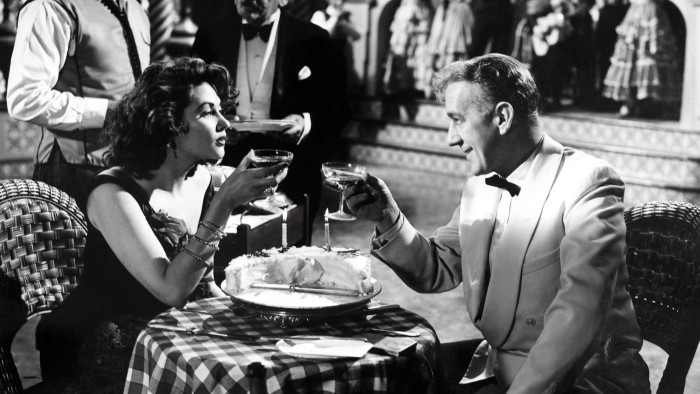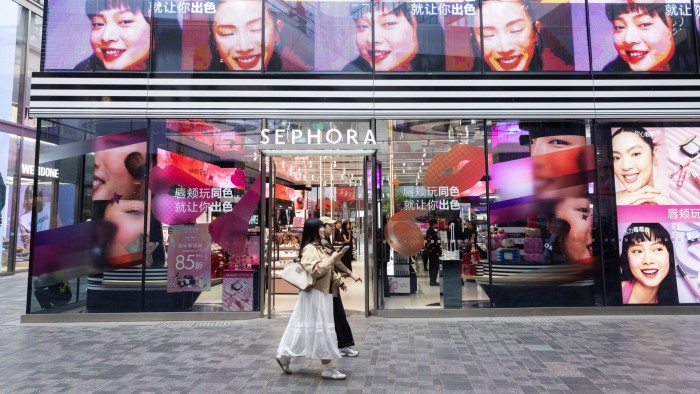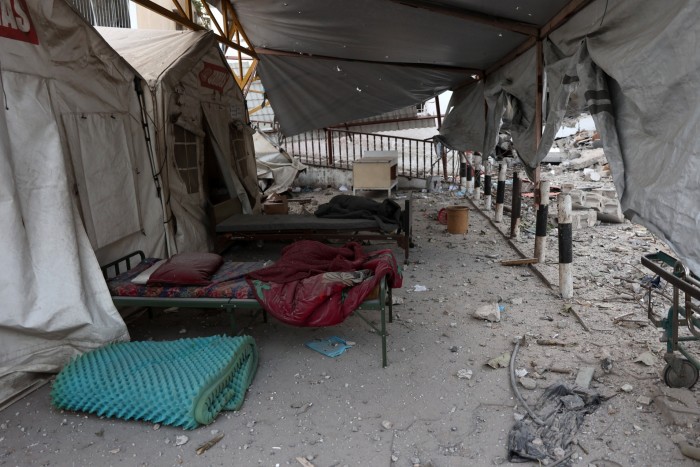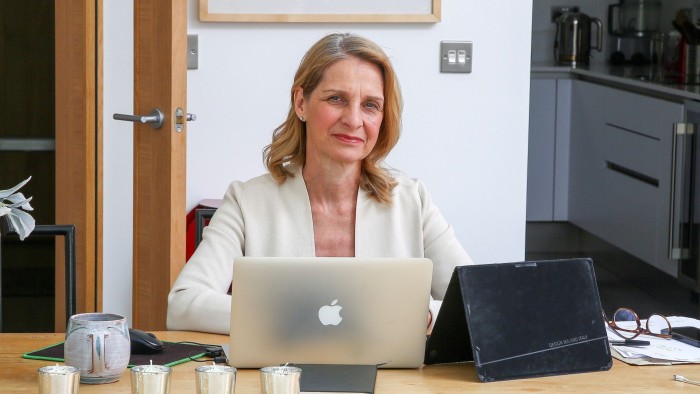The midlife non-crisis

Stay informed with free updates
Simply sign up to the Life & Arts myFT Digest — delivered directly to your inbox.
You have to wonder how much cash Ridley Scott would have saved on special effects had he filmed Blade Runner in Kuala Lumpur. That noirish thing he was going for — the rain, the futuristic skyscrapers and less futuristic streets, the neon signs blazing through it all — is a banal sight here. On nights like these, you keep waiting for a Vangelis synthesiser score to start humming from somewhere.
My annual dash around south-east Asia tends to linger on Malaysia, perhaps as a noble effort to know my maternal country a bit better, perhaps because the menu at Dewakan is so well-judged. Either way, in my twenties, these tours would have been far beyond my means. Later in life, they might be beyond my physical capacity. Done properly, south-east Asia is a bodily ordeal. There is the equatorial heat. There is the sensory blitz of some of the cities. As a British visitor, there is the jet lag. (God help an American one.)
In other words, for a visit, middle age is the optimal time. As it is for so much else.
What’s all this about the “midlife crisis”? At 43, I am older than the median Brit, so it should be kicking in about now. Instead, I would handily choose this age over 28 and, though I can’t know for sure, 70. Sounding out my peers, I find few who would differ. To head off what might be called the JD Vance objection — that I have no children to care for — this group includes lots of parents, most of whom seem to my untutored eye to be doting. Like me, they wince at the financial limits of the past and the physical decline to come.
Of course, there are high-spending twenty-somethings in the world. There are pensioners who are full of beans. (And people who will never have the luck to be either, at whatever stage of life.) But the equidistant age is when someone is likeliest to have the Goldilocks conditions of surplus income and the surplus energy with which to enjoy it.
If travel isn’t the right case study here, it might be alcohol. The young can’t afford life-changing wine, and those who can won’t have sampled enough bad stuff to savour it. But then their grandparents can’t metabolise alcohol as quickly, hence the hangovers that come with age. The medical advice on elderly drinking, even if it is honoured more in the breach than the observance, seems clear. And that is before any medication an older person might be on is reckoned for. There is a booze window, when resources and biology converge nicely, and I seem to be in it.
I won’t over-claim. As a phase of life, 18 to 35 trumps middle age in some non-trivial ways. Fitness, for one. Affairs of the heart, for another. Parenthood aside, there is no experience more vivid and potent than someone’s first few romances, with the effect that partners later in life often find themselves having to compete with ghosts. The whole business of two people coming together, which in youth is almost as mysterious as pop songs and films pretend, becomes transparent, even clockwork, through repetition, until you start to doubt how much free will any of us have.
Still, a certain jadedness isn’t the worst thing. It is certainly a small fee for the corresponding perks of midlife, which have come home to me during this trip. Only Europe beats south-east Asia for sheer geographic concentration of entrancing places. (Bangkok to Hanoi is the same flight time as London to Berlin.) And while almost all of Europe is high-income and majority Christian, Asean spans Singaporean and Laotian stages of development, as well as Buddhist, Muslim, Catholic and mixed societies. Hence the lure of the region, if also its shallow integration as a bloc.
Here each year, I pass through the safest places on Earth, and streets where it is hard to tell if the stuff soaking my shirt is the sweat of humidity or the sweat of nerves. I doubt I could do this beyond 60. I couldn’t have hoped to, with as much frequency and with as many creature comforts, much earlier than 35. And so what is meant to be a lull in life feels like a sweetspot. It isn’t quite true that James Callaghan, the former UK prime minister, said “Crisis? What crisis?” But it is only fear that one is around the corner, that this column will age like milk, that stops me saying it now.
Email Janan at janan.ganesh@ft.com
Find out about our latest stories first — follow FT Weekend on Instagram and X, and sign up to receive the FT Weekend newsletter every Saturday morning





